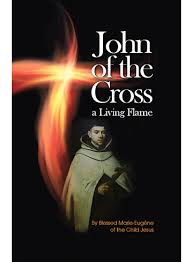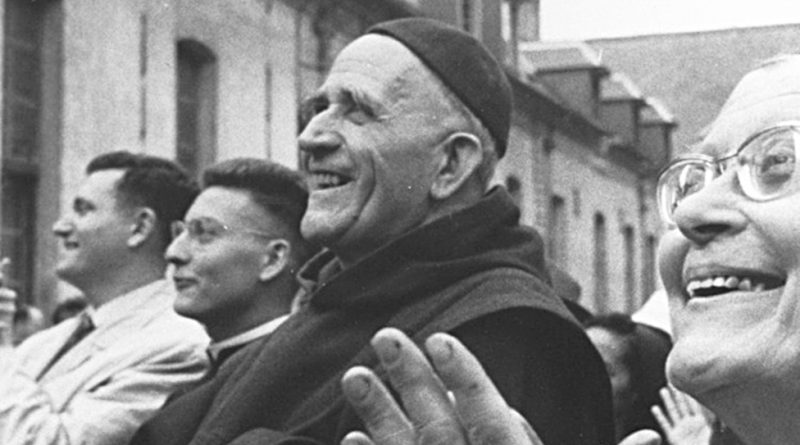French Carmelite priest who understood the unexpected pathways to synodality
At the recent Plenary Meeting of the Catholic Bishops’ Conference of England and Wales there was a great deal of discussion about how to take forward the many areas covered at the Synod on Synodality, which was held in Rome throughout October.
In his homily for the closing Mass of the Synod, the Holy Father recalled the Synod’s ultimate goal: ‘The Lord will guide us and help us to be a more synodal and missionary Church, a Church that adores God and serves the women and men of our time, going forth to bring everyone the consoling joy of the Gospel.’
In their statement following the Plenary meeting the bishops noted that “The synodal process was long and demanding but manifested a communal desire to listen attentively to the prompting of the Holy Spirit. Convergence in faith was honoured and divergence was explored without rancour.”
At the meeting the bishops discussed how the synodal process might be taken forward in our communities “here and now, in England and Wales”.
Their discussions were no doubt inspired by Pope Francis’ homily:
‘It is important to look at the “principle and foundation” from which everything begins ever anew: by loving. Loving God with our whole life and loving our neighbour as ourselves. Not our strategies, our human calculations, the ways of the world, but love of God and neighbour: that is the heart of everything. And how do we channel this momentum of love? I would propose two verbs, two movements of the heart, on which I would like to reflect: to adore and to serve. We love God through adoration and service.’
Following Pope Francis’s invitation, our bishops have extended a formal invitation to Catholics in England and Wales to consider a number of key questions as an intermediate step towards taking an active part in the synodal renewal, including:
- How can we create and promote space and time for prayer, for spiritual communion, for adoring God, and for listening and responding to God?
- How can we deepen and broaden opportunities for people to participate in the prayer of adoration, linking this to the service of others?
- How do we encourage greater participation in the synodal process at the local level, including further reflection on the Synodal Synthesis?
- How can our experiences of prayer, of thirsting and longing for God, and of gratitude and wonder, give a missionary witness and invitation that is attractive to others?
- How can the person of Christ be clearly seen at the heart of the service we offer?
- How can our service to people in need be framed and shaped to increase the widest possible participation?
No doubt other considerations will also emerge as the synodal process works its way into Catholic dioceses and parishes. If the final reports coming out of the synod were anything to go by, it’s highly unlikely that we’re going to resolve any of the controversial issues facing the Church, but in many respects that was never the intention, as fundamental Church teachings and principles are not for tampering with, regardless of the prevailing social winds.
What was intended – as the title Synod on Synodality implied – was to examine and re-evaluate the way in which our Catholic Church works, both internally and in terms of the face it presents to the world. That may seem like a pretty straightforward management weekend, but changing structures and power relationships can often become more controversial, dangerous and divisive than even the most profound theological changes.
As with most large corporations, the biggest inhibitor of change is invariably an over-fixation with ‘control’, and the Catholic Church has been no exception in this. Perhaps understandably, an institution structured around a complex collection of rules and practices is always going to be vulnerable to an inward-turning emphasis on maintaining and policing rules, rather than implementing them – though sometimes not without good reason!
This rigid application of authority within the Church is known pejoratively as clericism, and it’s something Pope Francis has had a particular aversion to throuthout his pontificate – indeed it was substantially the reason he called this latest Synod.
The Second Vatican Council’s Dogmatic Constitution on the Church, Lumen Gentium, reminds all the faithful that the Church is first and foremost the “people of God”, and this was a theme that recurred throughout the synodal discussions.
It also ran deeply throughout a book I read a few years back, and that I still pull off the bookshelf whenever I come to write anything about synods and synodality. With the Smell of the Sheep was a powerful collection of insights that Pope Francis delivered to ‘Priests, bishops and other shepherds’, giving his views on the ministry of the faith. For Francis the establishment of the Church is as much at the service of the laity as it is the controller and leader of it; indeed for Francis we are all together on a journey of equals in pursuit of Christ.
“Either the Church is the faithful people of God on the way, holy and sinful, or it ends up being a business offering a variety of services,” Francis told the Synod.
Whilst changing how we perceive structures within the Church, or even dispensing with elements of them entirely, presents profound challenges for our clergy, there’s an equal burden on the laity to take their seats at the table, and to accept that fundamental changes will also need to be made in the way that we Catholics practice and promulgate our faith.
But again, that’s changing the way we do things, not what we do.
And therein lies the difficulty, and the challenge of taking the spirit of the synod forward – compromises and a new openness will have to permeate all levels of the Catholic community.
Earlier this year I had the great privilege to edit and typeset a much-anticipated book on the great Spanish Catholic priest and mystic, St John of the Cross. The volume was the first English translation of John of the Cross – A Living Flame, by Blessed Marie-Eugène de l’Enfant-Jésus (pictured), a French Discalced Carmelite priest who had been an officer in the front line trenches during World War I. At the time of his discharge in 1919 he held the rank of Lieutenant and was decorated as a chevalier in the Legion of Honor with the military cross.
Just a year later he discovered the writings of St John of the Cross – and felt an overpowering call to the monastic life and to the Carmelites.
Throughout his life Marie-Eugène wrote extensively about the relationship between the individual soul and the infinity that is God. But he was no recluse; he understood profoundly that a Christian faith demanded the person communicate the love of God to others.
“There are everywhere people who are seeking God. Ah ! If I could reach them all and tell them about God’s infinite love!,” said Marie.
“You convert people far better through what you are than through what you do or say. You have to act, to speak, but above all you have to be.”
At a retreat he gave on 21st July 1942, he spoke passionately about his surrender to the will of the Holy Spirit, in a way that reaches out as profoundly relavent to the synodal journey we are all about to embark on.
“We need hardships, disappointments, we need to be thwarted in our thoughts and in our plans ; we need God’s breaking our framework in order to understand that there could be something different. And sometimes we don’t want to break our framework, for we are prisoners of our thoughts, of our plans. Before such or such a perspective, we say : ‘If I had known… ‘, and in front of God’s will which appears to us, we lag behind miserably. Sometimes we try, if not to limit the gift, at least to save time ; but in fact we waste time. This divine will does not turn back, and we miss the opportunity to unite our soul to God’s loving will ; we have refused to obey this light…”
The great friend and spiritual companion of St John of the Cross, Teresa of Ávila, would sometimes note that there were certain people of faith who “do not embrace the Cross, but rather drag it after them … so it distresses and wearies them and wears them to pieces.”
Teresa and John of the Cross suffered greatly for their attempts to reform the Carmelite Order in the 16th century. Indeed poor John suffered imprisonment and a brutal regime of torture from those who opposed his plans to reform the order and return its mission to the founding principles and the observance of its ‘Primitive Rule’ of 1209, which had been relaxed by Pope Eugene IV in 1432.
But both understood that the path to God is best trodden in a spirit of surrender, and openness to the will and direction of God, where one embraces the Cross rather than dragging it behind us.
“The Holy Spirit demands many things, he thwarts our plans,’ Marie-Eugène once wrote.
“All my life he has disconcerted me; he never did what I wanted to do, on the contrary, and I think he continues in the same vein … I went off, I was expecting a straight road and then … I had to stop immediately, to turn to the right or to the left …”
In the coming months, as we all immerse ourselves in the synodal journey, I’m sure such considerations will resonate profoundly as we navigate our way through the next phase of our spiritual journey together.
Joseph Kelly is a Catholic writer and theologian
____________________________

John of the Cross – A Living Flame, by Blessed Marie-Eugène, translated by Cyprian Blarimes, is available from Teresian Press, price £16.98 (PB)

